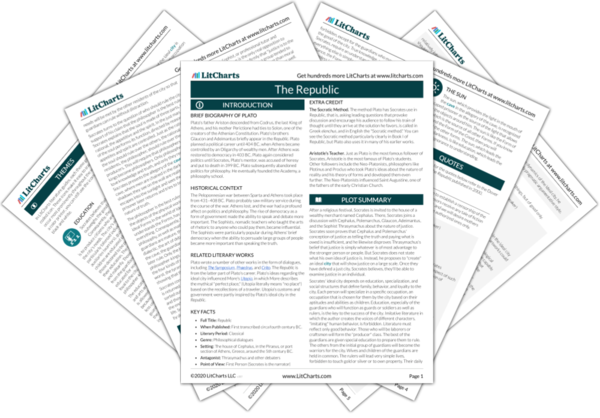The just city is a larger version of the just man, with the three social classes (producers, warriors and guardians) working together as the three parts of the soul work together in the just man. Two key concepts for the city are the emphasis on specialization, so that each person is trained for a particular occupation, and the emphasis on education, which encourages specialization and trains the guardians and the philosopher-king to properly rule. The ultimate failure of the city is tied to the failure of the education system, when someone whose aptitudes and nature are not suited to being a guardian, is selected in childhood and educated as a guardian.

